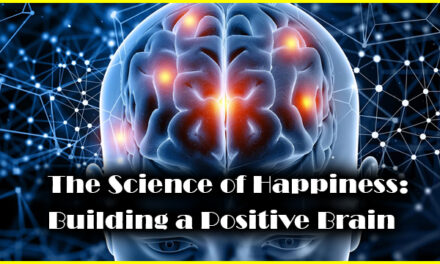How to Understand Human Psychology: A Complete Guide
Introduction
A vital ability that benefits both personal and professional life is an understanding of human psychology. Understanding psychological concepts can give you a big edge, whether your goal is to succeed in business, build better relationships, or improve communication.
In this blog, we will explore various aspects of psychology, backed by scientific studies and authentic references. This comprehensive guide is optimized with SEO keywords such as “understanding human psychology,” “psychological principles,” “human behavior analysis,” and “emotional intelligence.”
What is human psychology?
Human psychology is the study of thoughts, emotions, and behaviors. It includes various fields like cognitive psychology, behavioral psychology, and social psychology.
Key Aspects of Human Psychology:
- Cognitive Psychology: The study of internal mental processes, such as perception, thought, memory, attention, language, problem-solving, and learning, is known as cognitive psychology.
- Behavioral Psychology: “Behavioral psychology” is a branch of psychology that focuses on examining the relationships between behavior and the environment.
- Social Psychology: As defined by psychologist Gordon Allport, social psychology employs scientific approaches to help us comprehend and articulate how real, imagined, or deafeningly sidelined people can shape our feelings, thoughts, and functioning.
- Emotional intelligence (EQ): The ability to understand and control emotions proficiently.
- Neuroscience and Psychology: Establishes the link between behavior and activity in the brain.
Significance of psychology comprehension?
Psychology is critical in the following fields:
⦁ Personal Relationships: increases chances of compromise in communication and conflict.
⦁ Business & Marketing: Understanding one’s consumer behavior in order to properly market.
⦁ Leadership & Management: Deals with the use of psychology to achieve successful leadership.
⦁ Self-Growth & Mental Health: Integrate emotions and improve choices.
Effective approaches for comprehending human psychology
- Behavioral Observation
- There are certain actions that people do repetitively and expect different outcomes.
- Emotions can also be expressed without using words, for example, through actions like gestures, posture, or mimicry.
- Detecting concealed feelings can be aided by recognizing subtle body movements known as micro-expressions.
- Sensitivity and Active Involvement of Listening
- Listening actively eases the process of trying to know what a person really feels.
- Empathy builds relations because it enables one to view the world differently from how they feel about it.
- Psychological Theories Knowledge
- Maslow’s hierarchy gives insight into human motivation in relation to needs.
- What is Freud’s psychoanalytic theory about? One’s repressed wishes.
- CBT is useful for changing maladaptive schemas.
- Personality Types Analysis
- The Big Five personality traits (openness, conscientiousness, extraversion, agreeableness, and neuroticism) are a general approach to personality evaluation.
- MBTI is the most common test of personality difference.
- Triggers ‘emotions’ in the making of decisions
- Cognitive biases such as confirmation bias and anchoring effect are made to personalize information.
- Persuasion Techniques such as scarcity and social proof are common in marketing and business sales.
- Importance of Emotional Intelligence (EQ)
- Self-awareness: identification of one’s feelings and knowing the consequences of those feelings.
- Self-regulation: The ability to control one’s feelings.
- Motivation: having the will to accomplish a goal with the help of feelings.
- Empathy: The ability to understand the feelings of other people.
- Social skills: the ability to handle interpersonal relationships effectively.
Relation of Psychology to Daily Life
1. Business and Marketing Psychology
- Analyzing Consumer Behavior: Determining Causes of Product Purchases
- Neuromarketing: Application of brain science in the sale of goods and services.
- Psychological branding: linking brands to the emotions of consumers
2. Relationship Psychology
- Communicative Competence: attentive listening and acceptance of other people’s opinions.
- Problem Solving: Root cause analysis.
3. Self-Psychology
- Cultivating Self-Esteem: Rebuilding faith in oneself.
- Cultivating a Learning Orientation: Treating obstacles as avenues for growth.
Academic Measures and Citation Practices
For the validity of the claims, here are some well-established and extensively researched facts, which are:
Daniel Kahneman: Thinking, Fast, and Slow (2011): Treats cognitive biases and the processes of making decisions.
Robert Cialdini: Influence: The Psychology of Persuasion (1984): Covering modern marketing and advertising relied upon principals of persuasion.
Goleman D.: Emotional Intelligence (1995): Importance of EQ in different spheres of life.
Associated Members: Enable extensive development on various issues within psychology.
Harvard Business: Publishing the results of research on psychology and emotional intelligence in business.
Conclusion
To improve interactions both personally and professionally, one must have a solid understanding of human psychology. Learning cognitive biases, emotional intelligence, and behavioral patterns will help you make better decisions and build stronger bonds with others. You can improve leadership abilities, communicate more effectively, and gain a deeper comprehension of human behavior by putting these psychological concepts into practice.
Stay curious and keep learning!


